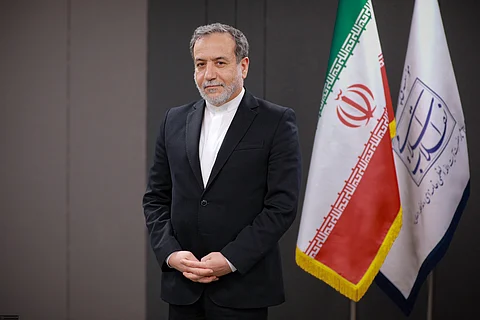

A high-level meeting between Iranian Foreign Minister Abbas Araghchi and the foreign ministers of the United Kingdom, Germany, and France—collectively known as the “E3”—as well as the EU’s top diplomat Kaja Kallas, concluded Friday in Geneva without any breakthrough toward de-escalating the ongoing conflict in the Middle East.
The meeting marked the first in-person contact between Iranian and Western officials since Israel launched its military campaign against Iran on June 13. Hopes had circulated that the summit could pave the way to revive diplomatic efforts and potentially prevent direct U.S. military involvement in the conflict. However, the talks ultimately failed to yield any tangible results.
Ahead of the summit, Araghchi reiterated Tehran’s longstanding position that its ballistic missile program is non-negotiable. He emphasized that the only area open for discussion remains Iran’s nuclear program.
Following the talks, Araghchi questioned whether the E3 could act as neutral mediators, accusing them of aligning with Israel. According to sources familiar with the meeting, the E3 pressed Iran to completely dismantle its nuclear enrichment program—echoing U.S. demands. Tehran firmly rejected this position, noting that such a requirement goes beyond the framework of the 2015 Joint Comprehensive Plan of Action (JCPOA), which permitted enrichment under strict oversight.
Araghchi also expressed disappointment that none of the E3 officials condemned Israel’s recent strikes on Iranian territory. He stated that Iran would not return to nuclear negotiations with the United States until Israeli military actions ceased, accusing Washington of being a complicit party in the conflict.
In a statement released Friday, U.S. President Donald Trump claimed, “The Iranians want to talk to us,” appearing to downplay the Geneva meeting. Earlier in the week, Trump suggested that Iranian officials had attempted to reach out to the White House—a claim Tehran has denied.
On Thursday, Trump announced that he would delay any decision on launching strikes against Iran for two weeks, citing Friday’s diplomatic meeting as part of the reason. However, it remains unclear whether the pause is a sincere effort to allow diplomacy or simply a tactical delay. Notably, Trump had made similar claims of pursuing diplomacy just hours before Israel launched its initial attack on June 13.